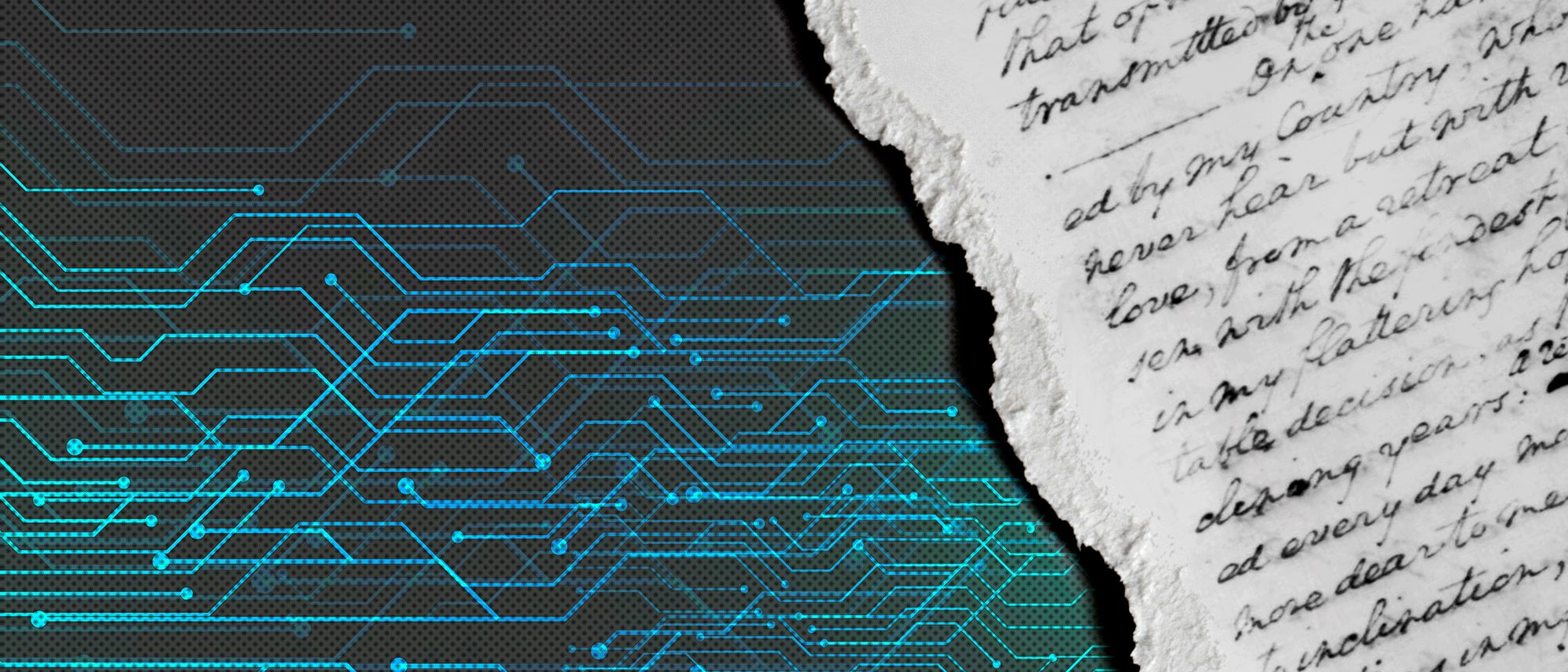
A gathering of ideas highlighting the continued relevance of the humanities is coming to Adelphi’s Manhattan Center in April 2026.
The Humanities in an Age of Intelligent Machines
Adelphi University is excited to host the first annual Adelphi New York Undergraduate Humanities Conference, sponsored by the SPARK Center, which will be held at our brand-new Manhattan Center in April 2026.
This conference invites undergraduate scholars from all humanities disciplines to explore how the humanities affirm themselves within a technological age. We welcome literary analysis, essays on history, philosophy, cultural studies, political studies, communications, or languages, that ask to what social, ethical, political, and environmental ends those tools should be directed.
The rapid rise of artificial intelligence, hailed by OpenAI CEO Sam Altman as a “gentle singularity,” has pushed us toward a world in which machines appear to think for us, reducing human experience to algorithms that are shaped by statistical probability. This only makes the humanities more essential than ever.
April 24, 2026
Adelphi University’s Manhattan Center
529 Fifth Avenue, New York, NY
Who Should Attend?
This one-day conference will bring together undergraduate students from universities across the tri-state region to present their research and discuss ideas related to the conference theme, The Humanities in an Age of Intelligent Machines.
Keynote Speaker
Our keynote speaker for the conference will be Jack Halberstam, PhD, director of the Institute for Research on Women, Gender and Sexuality and David Feinson Professor of Humanities at Columbia University. Halberstam is a noted academic and author of The Queer Art of Failure (Duke UP, 2011) and Wild Things: The Disorder of Desire (Duke UP, 2020).
Call for Proposals
This conference invites papers from disciplines across the humanities that consider the interaction of humanity with technology – how is the human constructed in the face of an increasingly technological world? How has history navigated these moments in which new technologies reorient the world and how has it changed humanity’s ability to define itself? In what ways does literature or philosophy grapple with what it means to be a human (or a post- or nonhuman)? In an era of digital identity construction, who gets to be human, and who doesn’t? How does technology bring together communities that assert or redefine humanity? How might the humanities work with or within technological advances to meaningful ends?
We welcome papers on a broad array of topics that engage with the fundamental nature of the human in a technological age, and that can critically think about how our current moment might be understood through a greater understanding of history, language study, culture, politics, or literature.
Questions to ponder:
- How is the human constructed in the face of an increasingly technological world?
- How has history navigated these moments in which new technologies reorient the world and how has it changed humanity’s ability to define itself?
- In what ways does literature or philosophy grapple with what it means to be a human (or a post- or nonhuman)?
- In an era of digital identity construction, who gets to be human, and who doesn’t?
- How does technology bring together communities that assert or redefine humanity? How might the humanities work with or within technological advances to meaningful ends?
Possible areas of inquiry include (but are not limited to):
- Humanities and AI: creativity, authorship, responsibility, and human agency
- Technology and the future of work, education, or democracy
- Ethics beyond utility: moral reasoning in an algorithmic age
- Language, translation, and linguistic shifts in digital culture
- Narrative, identity, and selfhood in an age of datafication and digital surveillance, Environmental humanities and planetary futures
- Power, surveillance, and biopolitics in digital societies
- Technological engagements with race, gender, legal status, and identity
- Humanities approaches to scientific knowledge and information theory
- The interdisciplinary intersection of technology as subject and practice
- Technology as historical, literary, and cultural artifact.
- AI and feminist, queer, anti-racist, and disability theories.
Submit your proposals by February 27, 2026.
Conference Contacts
-
Contact
-
516.877.4038
-
Science Building 127

-
Contact
-
Science Building 402
